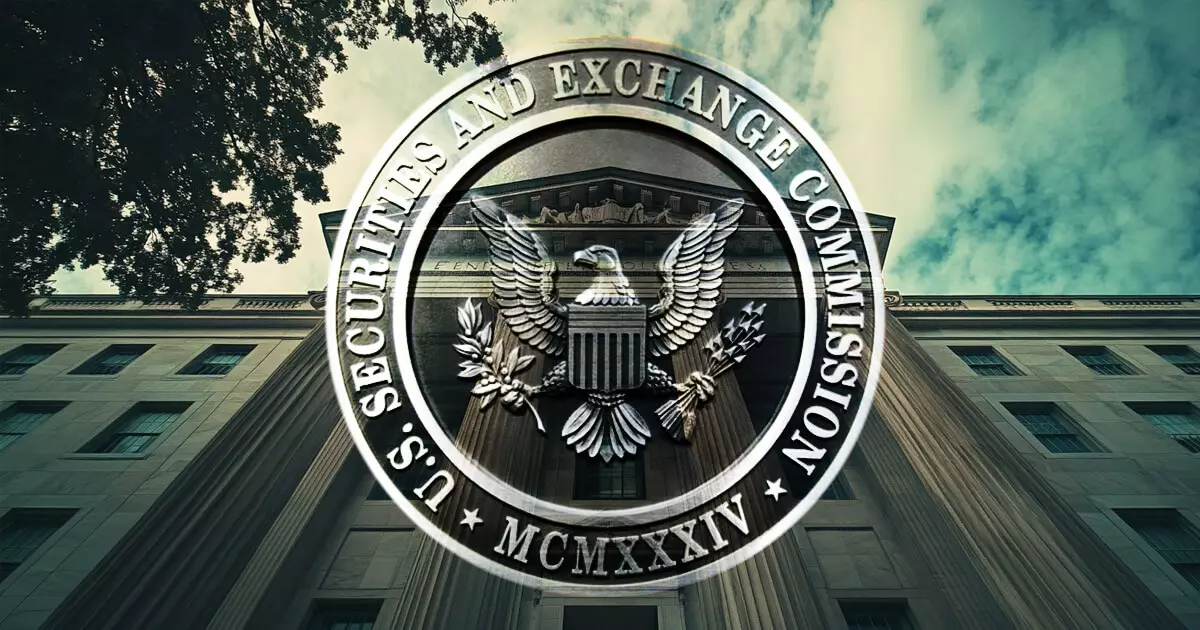In a significant move that underscores the evolving landscape of crypto regulation in the United States, TrustToken and TrueCoin—the brains behind the TrueUSD (TUSD) stablecoin—have settled with the U.S. Securities and Exchange Commission (SEC) over allegations of unregistered sales and fraudulent practices. This case not only highlights the complexities involved in the regulation of cryptocurrencies but also raises critical questions about the integrity and safety of stablecoins and their underlying assets.
The Details of the Settlement
Last week, the SEC announced a settlement that requires TrustToken and TrueCoin to pay a cumulative total of $700,000 in penalties and disgorgement. Notably, neither company admitted nor denied the findings of the SEC, opting instead for a no-admit/no-deny stance. This strategic decision seems to revolve around minimizing the burdens of litigation and refocusing efforts on future business ventures, as indicated by statements from company representatives. They asserted that they were prepared to defend their position but ultimately chose to reach a resolution that would avoid prolonged distractions from their operational goals.
The SEC’s investigation was spurred by allegations that from November 2020 to April 2023, the companies had engaged in unregistered offers and sales of TUSD as investment contracts via their TrueFi lending protocol. The crux of the complaint hinges on claims that TUSD was marketed to investors as being fully backed by U.S. dollars or their equivalent, while a significant portion of these assets was instead funneled into a speculative offshore fund—a revelation that introduces serious questions about transparency and investor protection.
The implications of this settlement reach far beyond the wallets of TrustToken and TrueCoin. The SEC has been increasingly vigilant in scrutinizing the crypto industry, reflecting a broader commitment to enforcing regulatory measures on digital assets. The agency’s heightened attention is evidenced by a staggering rise in fines collected from the crypto sector—a record high of $4.68 billion in 2024 compared to $3.9 billion in 2023. These numbers indicate a clear shift toward stricter oversight and regulation, impacting not only the companies involved but also the overall landscape of cryptocurrency.
Investors need to be acutely aware of these changes, as the SEC’s Acting Chief of the Crypto Assets & Cyber Unit, Jorge G. Tenreiro, emphasized the fundamental importance of registration in protecting investors. He identified this case as a pertinent example of how unregistered securities can expose investors to significant and undisclosed risks—an alarming prospect that could redefine consumer confidence in stablecoins altogether.
The immediate aftermath of the settlement saw TrueUSD experience a slight de-peg, with its market cap fluctuating amid investor uncertainty. Initially valued near the $1 mark, it dipped to around $0.98 shortly after the announcement, although this remains within the broader ranges observed over the past six months. Such volatility is characteristic of circumstances where trust—fundamental in the realm of cryptocurrencies—has been shaken.
The reality is that the allegations of mismanagement and lack of transparency can have lasting effects on not just TUSD, but also other stablecoins that assert similar claims regarding asset backing. If skepticism continues to grow around the robustness of stablecoins and their guarantees, we might witness a ripple effect across the entire crypto ecosystem, prompting other entities to preemptively adapt to the shifting regulatory environment.
As we move forward, it is crucial for crypto projects to foster a transparent and compliant operating environment. The implications of the TrueUSD settlement may serve as a wake-up call for industry players to adopt rigorous internal compliance measures and enhance transparency regarding backing assets. The SEC’s stance on protecting investors is unlikely to waver, and for businesses operating in this sphere, adapting to regulatory expectations will be as vital for survival as innovation itself.
The recent settlement underscores the growing pressures from regulatory bodies on the crypto industry. TrustToken and TrueCoin’s experience serves as a cautionary tale that highlights the importance of compliance, transparency, and investor protection in a rapidly evolving financial landscape. The future of stablecoins hangs in a delicate balance, reliant on the industry’s ability to navigate these complex regulatory waters effectively.



Leave a Reply